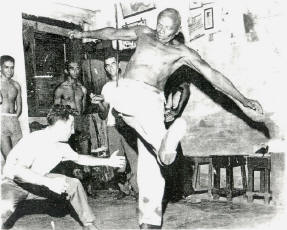
Two words: phrasal verbs.
Phrasal verbs are combinations of a verb plus one or more prepositions, and they are nightmares for my students because the meaning of the same verb changes based on what preposition(s) and objects come after it.
Here’s a small sampling based on the word take:
- Take after somebody (“She takes after her mother.”)
- Take something apart (“He’s taking apart the TV to fix it.”)
- Take something back (two definitions: to return something to a store and to admit something you said was wrong)
- Take something down (two definitions: to dismantle, and to write something down)
- Take somebody in (which is different than being taken in, i.e. to be tricked)
- Take something in (two definitions: to understand, and to make clothing smaller)
- Take off
- Take something off (i.e. clothing – OR to take time off from work)
- Take on something (“Our website is taking on a more modern look.”)
- Take something on (“I can’t take that project on.”)
- Take somebody on
- Take somebody out
- Take something out on somebody
- Take over something
- Take somebody through something (“Let me take you through the procedure…”)
- Take to something (“He’s recently taken to wearing a hat.”)
- Take to somebody (“I took to Jim from the moment I met him.”)
- Take up something (“These boxes take up a lot of space.”)
- Take up something (“I’ve recently taken up yoga.”)
- Take somebody up on something (“I think I’ll take you up on your offer.”)
- Take something up with somebody (“I’m going to take my complaint up with the management.”)
Pretty much all these expressions, in Portuguese, have completely different verbs. For example, “take after” is puxar (to pull):
Ele puxou o pai. = He takes after his father.
Take apart can be desmontar; take up (an activity) is começar; take off (a plane) is decolar; take off (clothing) is tirar; take somebody out (for dinner) is levar para jantar; take down (in writing) is anotar; etc.
If you think “take” is bad, don’t even get me started on “get”!


